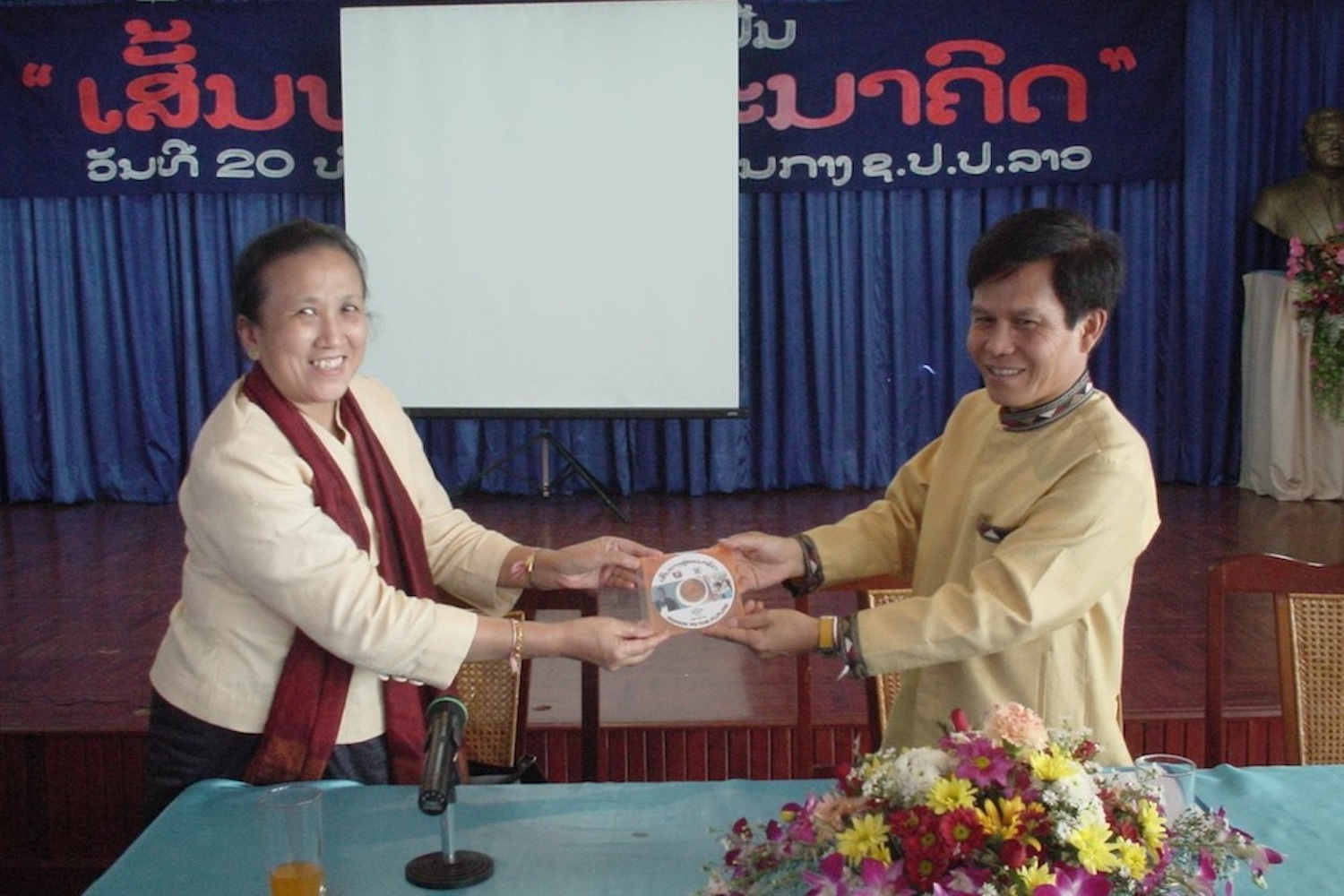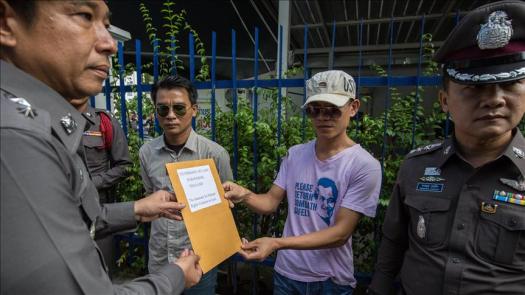OHCHR: 04 October 2024
 For 12 long, painful years, Shui-Meng Ng has been looking for an answer to one simple question: “Where is Sombath?”
For 12 long, painful years, Shui-Meng Ng has been looking for an answer to one simple question: “Where is Sombath?”
Sombath Somphone, Ng’s husband, was last seen on 15 December 2012 at a police checkpoint on a busy street of Vientiane, the capital of Lao People’s Democratic Republic. Footage from a CCTV camera shows the award-winning community activist and civil society leader being stopped by police officers, minutes before unidentified individuals force Somphone into another vehicle and drive away.
Since that day, Ng has led a tireless campaign in search of truth and justice for her husband and to end enforced disappearances in Lao PDR and elsewhere.
At the opening of the 27th session of the UN Committee on Enforced Disappearances (CED) in Geneva, Ng recounted her struggle to shed light on the case, sharing her appeal with human rights groups, victims, UN human rights experts and organisms, and Member States.
“I don’t know how long I will be able to live on. But I can say I will continue my struggle to find truth and justice for Sombath until my last breath,” Ng said in her statement. “The Lao government authorities have ignored my appeal for 12 years and they continue to tell the people who asked about what happened to Sombath that the investigation is still ongoing.”
Emotional impact on families
Ng spoke of the profound emotional impact of enforced disappearances on families, who are left in a permanent state of limbo, without knowing the whereabouts of their loved ones.
“Despite the passing of time, the pain, the suffering does not go away. It remains as time passes because the fear that he will not come back looms larger and larger. And the hope that he will return also fades,” she said. “That is why enforced disappearances is the most difficult criminal act against human rights.”
At the time of his enforced disappearance, the internationally acclaimed agronomist and development leader, who was born in 1952, was working with poor farmers and rural communities to improve their livelihoods and protect the environment.
Ng has repeatedly appealed to Lao government authorities to investigate the case. She told the Committee that she believes her husband was targeted because he had “annoyed some powerful people who thought that what he was doing was undermining their interests.”
A Singapore national who holds a PhD in sociology, Ng has campaigned around the world for Somphone’s release and has written a book on the case, “Silencing of a Laotian Son: The Life, Work and Enforced Disappearance of Sombath Somphone.” She also writes a blog, where she posts personal letters and poems to her husband, and denounces the Government’s lack of action.
Disappearances on the rise
Enforced disappearance has frequently been used as a strategy to spread terror within societies. Experts warn it has become a global problem and is not restricted to a specific region of the world. According to UN figures, hundreds of thousands of people have vanished during conflicts or periods of repression in at least 85 countries around the world, but also in time of peace, in all regions of the world.
In his opening statement of the session, Mahamane Cisse-Gouro, Director of the Human Rights Council and Treaty Mechanisms Division at the Office of the UN High Commissioner for Human Rights, referred to the increase of enforced disappearances around the world as a result of national and international conflicts, and growing polarization within and between countries.
Replying to Ng on behalf of the Committee, expert Barbara Lochbihler said that since Somphone was disappeared, civil society organizations in Lao PDR operated in fear and have become more careful in their work.
“Sombath Somphone’s case clearly shows that an enforced disappearance has not only serious consequences for family and friends who are left behind, it very often has a chilling effect on the civil society of the given community or country,” she said.
Lochbihler said the Committee was stepping up its outreach to governments and the broader human rights movement so that countries ratify the Convention as part of a fight against enforced disappearances.
“We will appeal to the Lao government to demonstrate this political will. And we will never forget the victims,” Lochbihler said.
As dawn breaks every morn
My anger against the injustice and unfairness of your disappearance
Grows
Why you, why me, why us? Why the countless victims
Left bereft, living in fear, living in despair!
Shui-Meng Ng, from her poem “As Dawn Breaks Every Morn
During a visit to Lao PDR in June 2024, UN Human Rights chief Volker Türk called on the Government to continue investigations into cases of enforced disappearance, including that of Somphone, and to ratify the UN Convention for the Protection of all Persons against Enforced Disappearances.
Lao PDR has signed but has not ratified the Convention.
The Committee is a body of independent experts tasked with monitoring the implementation of the UN Convention for the Protection of all Persons against Enforced Disappearances by State parties. It works to support victims, civil society organizations, national human rights institutions and States to search for and locate disappeared persons, eradicate, punish and prevent this crime, and repair the damage suffered by the victims.




 (Note: The Lao PDR has twice promised to ratify this convention in its Universal Periodic Review, but it has not yet done so.)
(Note: The Lao PDR has twice promised to ratify this convention in its Universal Periodic Review, but it has not yet done so.)

 The last
The last 




 Press conference at the
Press conference at the